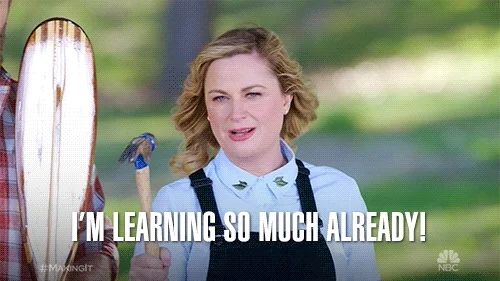
This logo isn't an ad or affiliate link. It's an organization that shares in our mission, and empowered the authors to share their insights in Byte form.
Rumie vets Bytes for compliance with our
Standards.
The organization is responsible for the completeness and reliability of the content.
Learn more
about how Rumie works with partners.
 Photo by Philippe Bout on Unsplash
Photo by Philippe Bout on UnsplashMany PhD programs are academically demanding, stressful, and time consuming, but it's a journey that can be made easier with careful planning and setting achievable goals. Setting clear and achievable goals will help you achieve academic success in your PhD program.
Set SMART goals
 Photo by Estée Janssens on Unsplash
Photo by Estée Janssens on UnsplashThe SMART method will help you set achievable, clear, and manageable goals that will get you to academic success. Your goals must follow the SMART criteria. Ask yourself questions to set the right goals:
Specific: What do you want to achieve? How will you achieve it?
Measurable: How will you decide when you've reached your goals?
Achievable: What do you need to achieve your goals?
Relevant: Are these goals relevant to you?
Time bound: When do you want to reach these goals? Do you have a deadline?
Specific

A good SMART goal is specific. Ask yourself exactly what your goal is, why you want it, and how it will impact you. Here is an example of a specific goal for academic success in your PhD program:
Goal: "I will choose a topic for my dissertation by the end of my first year in the program."
This goal is specific because it states clearly what you need to achieve within a specific time frame. You need to first choose a topic to write a dissertation paper, which is a necessary step to graduating from a PhD program.
Measurable
 Photo by Becca Tapert on Unsplash
Photo by Becca Tapert on UnsplashA SMART goal is measurable. Ask yourself how you'll measure your success. You'll need to think of measurement as a way to assess your version of academic success. When will you know that you've reached your goal?
Goal: "I will choose a topic for my dissertation by the end of my first year in the program."
Here is a 6-step checklist that will measure whether the topic you choose is appropriate for your dissertation:
Are you interested in a certain topic/research question? Is the topic going to keep your interest for the next few years?
Does your topic/research question have a fresh and new perspective? Will your topic positively impact your field?
Does your topic/research question avoid being too broad or specific?

Have you engaged in a broad literature review of your topic/research question? Do you have enough information on the topic?
Can you stay objective during your research on your chosen topic?
Does your advisor approve of your chosen topic/research question?
Achievable

A SMART goal is achievable. Your goal must be realistic and easy enough to reach — it can push you to improvement, but it must still be possible for you to achieve.
Goal: "I will choose a topic for my dissertation by the end of my first year in the program."
This goal is achievable, as it can be completed in a timely manner and is a requirement for you to graduate as a PhD student. Generally, PhD students finalize their dissertation topics within the first or second year of their degree. This will give you enough time to choose a topic.
Relevant
 Photo by Dom Fou on Unsplash
Photo by Dom Fou on UnsplashA SMART goal is relevant. A relevant goal means that this goal is important to you and aligns with your needs and wants. You need to ask yourself, does this goal matter to me? Is it relevant to my life right now? How is it relevant to me?
Goal: "I will choose a topic for my dissertation by the end of my first year in the program."
This goal is relevant because choosing a topic is the first step in achieving success with your dissertation.
Time bound

A SMART goal is time bound. This means that your goal must be accomplished in a timely manner. Ask yourself, is this a short-term or long-term goal? When do I want to achieve my goal? What can I do in the next few weeks to work towards my goal?
Goal: "I will choose a topic for my dissertation by the end of my first year in the program."
This goal is time bound because it has a deadline. Keeping on track and having a deadline will help you throughout your degree and ensure you have enough time to choose a topic, conduct a literature review, write and edit your first draft, and have it approved by your advisor.

Depending on the length of your PhD program, you must start writing your dissertation within the first or second year of your degree after choosing a topic.
Quiz Time
 Photo by RAMSHA ASAD on Unsplash
Photo by RAMSHA ASAD on UnsplashYou now know how to set effective and achievable goals using the SMART method for goal setting.

Janice is a first year PhD student and needs to conduct initial research before deciding on her chosen dissertation topic/research question.
How can Janice set SMART goals to achieve her goal? Here are some examples of potential goals that Janice could use to reach her goal:
Goal 1: Read four research articles in one week and highlight common themes to review for potential ideas of a topic/research question.
Goal 2: Explore the research papers of researchers who share research interests to mine.
Goal 3: Speak to my advisor to brainstorm potential a topic/research question.
Quiz
Which of the three example goals would be the most effective and achievable for Janice to research her goal?
Goal 1 is the most appropriate goal that follows the SMART method. This goal is specific and measurable, as it has the number of articles that Janice needs to read. The goal is relevant, as reading the articles and highlighting common themes will help Janice choose a topic/interest question. The goal is also achievable and time bound, as Janice has one week to read four articles, which most PhDs can do realistically.
Take Action
 Photo by Matt Ragland on Unsplash
Photo by Matt Ragland on UnsplashYou now know how to set goals for academic success in your PhD program. There's more you can do to help you reach your goals.
This Byte has been authored by
Katira Ahmed
Instructional Designer & UX/UI Designer
Master of Education